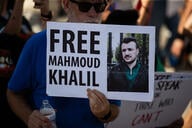You have /5 articles left.
Sign up for a free account or log in.
In the latest twist of a curious legal case involving allegations of identity theft, cyber-bullying, and two-millennia-old religious artifacts, a well-known University of Chicago professor has been implicated in a complex, Internet-based scheme to smear opponents of his work. Norman Golb, a professor of Jewish history and civilization at Chicago, has been mostly a sideline figure since his son, Raphael, was arrested last March after allegedly creating dozens of Web aliases and using them to harass and discredit scholars who disagree with his father’s theories about the origins of the Dead Sea Scrolls. But new court documents point to evidence suggesting that Norman Golb, his wife, Ruth, and their other son, Joel, were aware of the alias-based campaign and may have assisted in carrying it out. Raphael Golb stands accused of harassing various scholars who do not believe that the Dead Sea Scrolls originated in Jerusalem — a theory Norman Golb advocated in a 1995 book. The new documents, released last month, purport to show transcripts of e-mails exchanges among members of the Golb family indicating coordinated efforts to advance Norman Golb’s theories though Web aliases. They also include sharp criticisms of Schiffman, which the prosecution is trying to use as evidence of motive and intent for the identity theft — the only felony charge against Raphael Golb. The evidence was released to the court after the defense moved to suppress it. Norman Golb could not be reached for comment.
Raphael Golb’s attorneys are arguing that the e-mails are immaterial to the case since they do not contain any of the threats, obscenity, or “fighting words” that would constitute harassment. If the state had a compelling interest in limiting criticism, they wrote in a court memo, all of New York’s editorial writers would be in prison.
Norman Golb, meanwhile, said in an e-mail to Inside Higher Ed that he is not privy to his sons' e-mail correspondence and is “certainly unaware of any ‘smear campaign’ in the various articles about the Scrolls controversy attributed to Raphael.” He added: “It is unfortunate that my critics resort to attacking members of my family rather than engaging with me in scholarly debate on the merits.”





